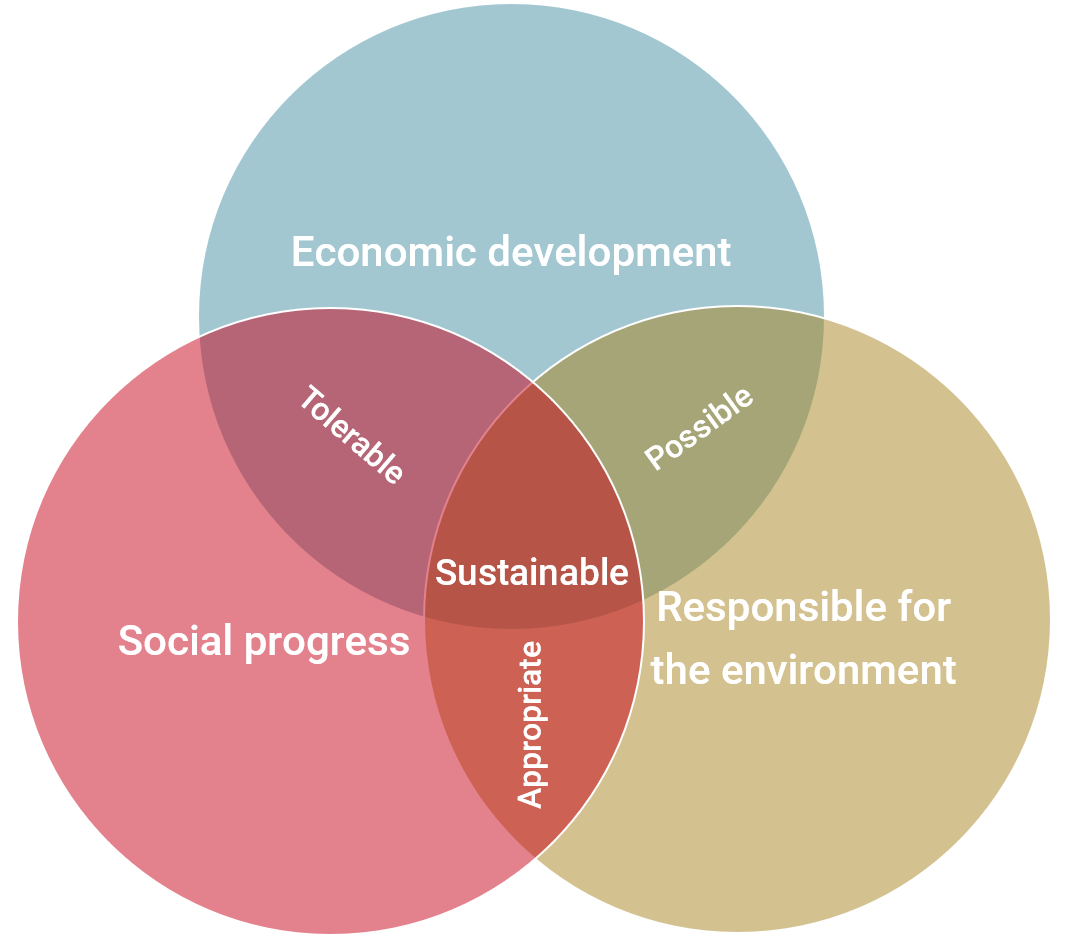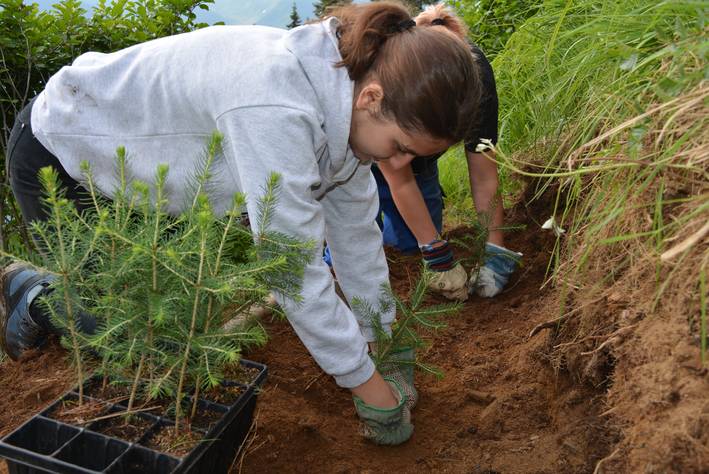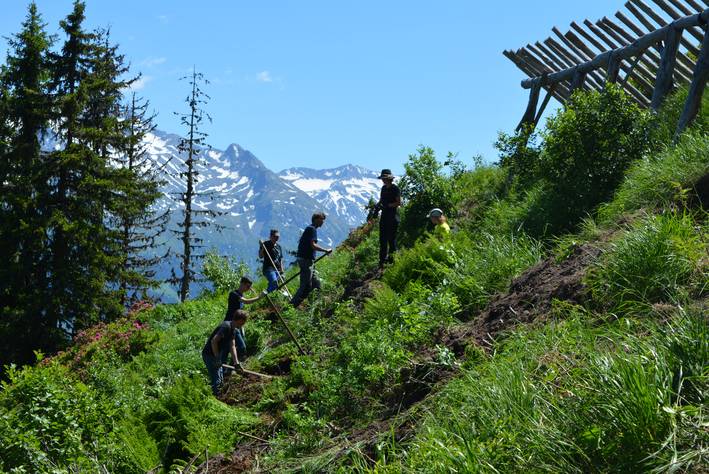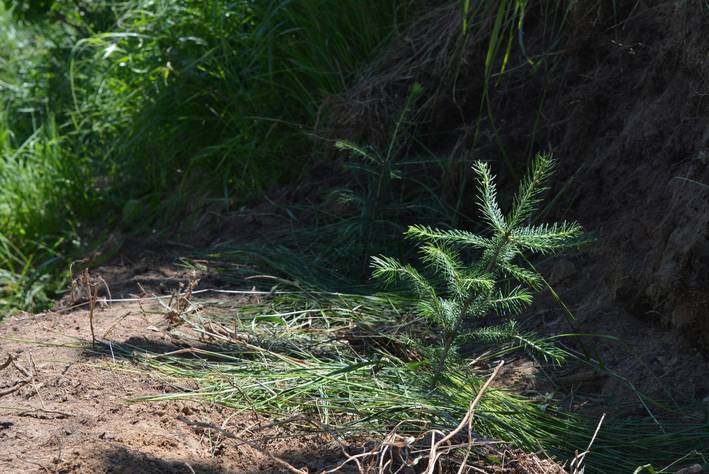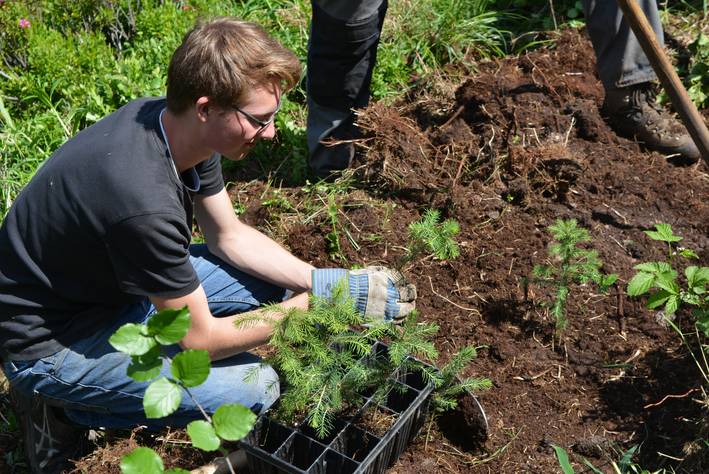Sustainable Development
The University of Applied Sciences (UAS) of the Grisons is committed to act and develop responsibly based on the ‘Sustainable Development Goals’ (SDG) adopted by the United Nations for all member states in 2015.
The UAS Grisons integrates the principles of sustainable development into its teaching and continuing education mandates, its research and development, as well as management and support tasks. It ensures equal opportunities and high-quality education according to SDG 4. In addition, through cooperation in teaching and research with regional organizations, it contributes to the promotion of decent work for all, as well as broad-based and sustainable economic growth in Graubünden – according to SDG 8.
In 2009, the UAS Grisons was the first Swiss university to join the United Nations’ ‘Principles for Responsible Management Education (PRME)’ initiative. This initiative includes seven principles that ensure socially and ecologically responsible training for future specialists and managers.
The UAS Grisons bases its work and management tasks on the 3-sphere model of sustainability. The circles represent the three dimensions of sustainability: the environment, the economy, and the society. Interactions happen between the economic, social, and ecological processes; however, true sustainable development is only at the intersection of all three dimensions. The UAS Grisons is committed to multi-dimensionally, taking all three dimensions into account.
Sustainability Commission
The Sustainability Commission, representing the employees and the student body, supports the University of Applied Sciences of the Grisons in sustainable development. A minimum of five members from all areas of the university comprise the commission: Three faculty members or scientific staff (one person per department), one student and one person from Central Services. A member of the university executive board acts as liason between the commission and the management board of the University.
The following employees were elected as members of the Sustainability Commission and as liaison to the university management board:
Student participation:
Riaan J. Kämpfer
By implementing concrete measures, the Sustainability Commission contributes to establishing the values of sustainable development and helps shape a culture of sustainability at the University of Applied Sciences of the Grisons.
Sustainable Development Declaration
In September 2023, employees, lecturers and students of the UAS Grisons negotiated the most important aspects of sustainable development at the UAS Grisons together with their most important stakeholder groups. This resulted in the Declaration on Sustainable Development, which covers all areas of the UAS. It forms the basis for the sustainable development of the UAS Grisons in the coming years. The method used to develop the sustainability declaration is briefly explained below.
The aim of the event on 11 September 2023 was for the university community to confirm its commitment to sustainable development in a participatory process. Participation was open to all employees, lecturers and students of the UAS Grisons. No special prior knowledge of sustainable development was required for participation. Representatives of the most important stakeholder groups were invited as external guests. These included the Office for Higher Education of the Canton of Graubünden, NGOs, the scientific community and business associations. The external and internal (employees and students) stakeholder groups presented their requirements and expectations of the UAS Grisons with regard to sustainable development. As these expectations inevitably involve conflicting goals and the UAS Grisons cannot meet all requirements, the requirements had to be prioritised. For this purpose, the participants were divided into the various working groups Teaching, Research and Services, Central Services, Vice-Rectorate and Rectorate and University Management according to their functions at the UAS Grisons. The students were part of the "Teaching" group. In these groups, they discussed and determined which of the requirements were most important for their functions and roles. They also negotiated what contribution they themselves can and want to make, e.g. via their functions. The event concluded with the presentation of the requirements defined as essential to the university management. The university management discussed and prioritised the requirements and unveiled the final sustainability declaration on 27 September. In the next step, the Sustainable Development Thinking and Action Area will work with the Sustainability Commission and other responsible parties to develop measures for implementing and operationalising the sustainability declaration.
Research and service projects
In the key research areas of Tourism, Infrastructure and Regional Development, sustainability is integrated as a cross-cutting issue. The research field of Corporate Responsibility addresses various issues relating to responsible corporate governance and entrepreneurial sustainability. The research thus also meets one of the six PRME principles by committing itself to improving knowledge about the role, dynamics and impact of companies in creating sustainable social, environmental and economic values.
The following examples show where the responsibility for sustainability co-determines the research activities of University of Applied Sciences of the Grisons and permeates them as a cross-cutting issue. The megatrends provide us with the desired tailwind here.
Study and further education programmes
The “Sustainability in teaching” strategic initiative applies the PRME principles and incorporates global social responsibility values in its academic activities and curricula as they are presented in international initiatives such as the United Nations Global Compact. The sustainable development module is thus taught in all business and service study programmes in addition to the specific modules (e.g. sustainable tourism). Among others, the objectives are to ensure that students are familiar with the most important principles and concepts of sustainable development and can incorporate them in their actions during their later professional lives. They should develop skills that allow them to actively implement sustainable development. This means that they understand the link between various modules in their study programme and the topic of sustainability.
On the basis of this expertise, University of Applied Sciences of the Grisons can offer sustainability as part of a comprehensive service offering.
Bachelor’s degree programmes
- Architecture
Building culture history, spatial and regional planning - Civil Engineering
Geotechnology, timber construction, solid construction, transport, hydraulic engineering - Business Administration
Business ethics, innovation management, leadership, sport governance - Multimedia Production
Media ethics, minor in international and intercultural communication - Tourism
Major in sustainable tourism and international development, environment and sustainability, sustainable development and tourism, qualification in sustainability, ethics in a globalised context, sociology, cultural sciences
Master’s degree programmes
- Tourism and Change
Corporate responsibility, sustainable tourism management, intercultural skills and socio-economic development through tourism, risk and crisis management in the tourism sector - New Business
Corporate responsibility, sustainable business development, talent management, intercultural cooperation, change management
Further education programmes
Mountain Forest Project
Upon completing their study programme at University of Applied Sciences of the Grisons, graduates receive a special gift that corresponds to the principles of sustainability: the Mountain Forest Project Foundation plants a mountain spruce above the Graubünden mountain village of Disentis on behalf of University of Applied Sciences of the Grisons for every graduate.
The planting of these trees aims to sustainably replace the avalanche barriers built decades ago at the forest edge. It has been shown that the location is capable of maintaining woodland and that a forest can be gradually established here that will in future take on the protective function of the existing barriers.
As part of the long-term cooperation between the Mountain Forest Project Foundation and University of Applied Sciences of the Grisons, the first spade was put in the ground by University of Applied Sciences of the Grisons apprentices in summer 2018: over the course of two days, they planted 75 mountain spruce trees.
Follow the growth of the mountain spruce in the coming months as the volunteers travel back to Disentis during the project week in October.
Further details on the Disentis project of the Mountain Forest Project Foundation
Sustainability Week
From Monday, 24 March to Saturday, 29 March 2025, the Sustainability Week will take place in Chur, organised by the studentHUB of the UAS Graubünden. The programme can be viewed and registration is possible under this link.
Suggestions
In order to promote the sustainable development of the UAS Grisons, employees and students are invited to submit suggestions to the Sustainability Commission. The Sustainability Commission discusses the proposals and forwards them to the responsible office within the university.
Proposals can be submitted via Confluence.



